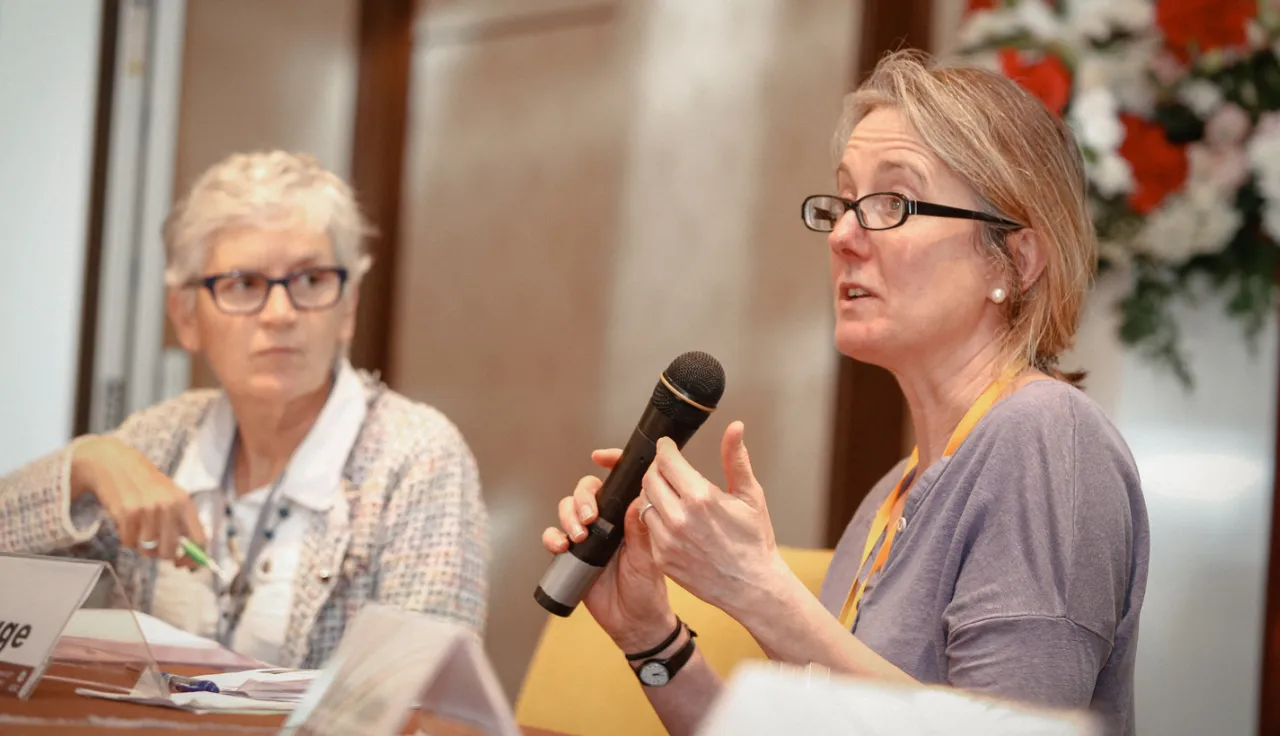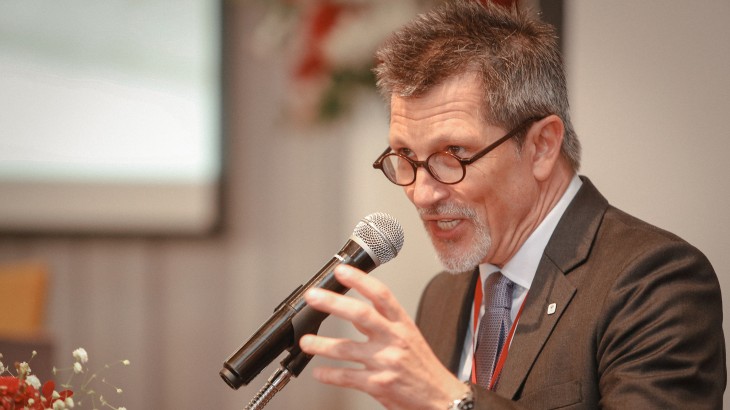Prison health is public health

The latest report by the World Prison Population List estimates that close to 11 million people are held in penal institutions across the world. Thus, it becomes imperative to take care of prisoners' health as it directly impacts the country's health situation too.
This issue was at the core of the 1st Asian and Pacific Conference on Prison Health held in Bangkok from 13 to 15 November. Experts and panelists emphasized that the importance of ensuring prisoners' good health once they are released starts with the simple fact that they would contribute positively to the society instead of adding burden on the public health-care system or posing a health risk.

CC BY-NC-ND / ICRC
The conference was attended by senior correctional managers and staff from prison medical services, representatives of ministries of justice, interior, defense and health from 13 countries in the Asia-Pacific region. This forum created a conducive environment in which the States' representatives were reminded of the need to protect the prisoners' inherent dignity as human beings and treat them humanely, regardless of the reason for their detention.
Mr Vitaya Suriyawong, the deputy permanent secretary of Thailand's Ministry of Justice, said: "Health standards for people in prisons should be on par with those available to the citizens outside. Prisoners' access to health shouldn't be considered a luxury. Even if deprived of their freedom, they are still human beings and while they undergo a punishment for their crime, they shouldn't be punished further. They are members of our community. Sooner or later, they will have to return to the society."
Issues debated during the conference included best practices and health standards applicable in prison settings, health information management system, research and telemedicine, health care for specific vulnerable groups, continuity of care and integration between prison and civilian health services, prison health financing and public health engineering.
For prison health practitioners across the region, there are a number of challenges they have to deal with on a daily basis, such as the lack of funding, lack of human resources, lack of policy support and public misperception about persons behind bars. The conference aimed at bringing together experts from different sectors related to prison health and share best practices, innovative approaches and approaches used to overcome or handle these challenges.
The international gathering was also aimed at creating long-term partnerships between the attendees.

CC BY-NC-ND / ICRC
Dr Luca Falqui, the health programme manager for the ICRC regional delegation in Bangkok, said: "The three-day conference showed that good interpersonal relationships, mutual understanding and an empathetic attitude among the stakeholders can make way for institutional and trans-sectorial dialogue in prison health."
Experts also spoke at length about the need for multidisciplinary collaboration.
Dr Emma Plugge, a senior fellow in public health at the University of Oxford who works for the WHO Europe Prison Health Research & Engagement Network (WEPHREN), presented an online platform for resources to promote health in prisons. This indicated that a combination of practitioners' perspectives and academic research could bring useful and effective solutions to many issues of prison public health.
Dr Plugge told the participants: "We want to ensure that the research means something to the policymakers, practitioners and prisoners. It should make a difference to the lives of those in prisons."
The second edition of the Asian and Pacific Conference on Prison Health will be held in 2018 in Cambodia. For regular updates, please visit conference website www.apcph.icrc.org.



